In this article:
Amebiasis is an infection of the digestive tract caused by a protozoan parasite called Entamoeba histolytica. It affects the gut (intestines) and is usually spread via drinking or eating anything contaminated with the parasite. (1)
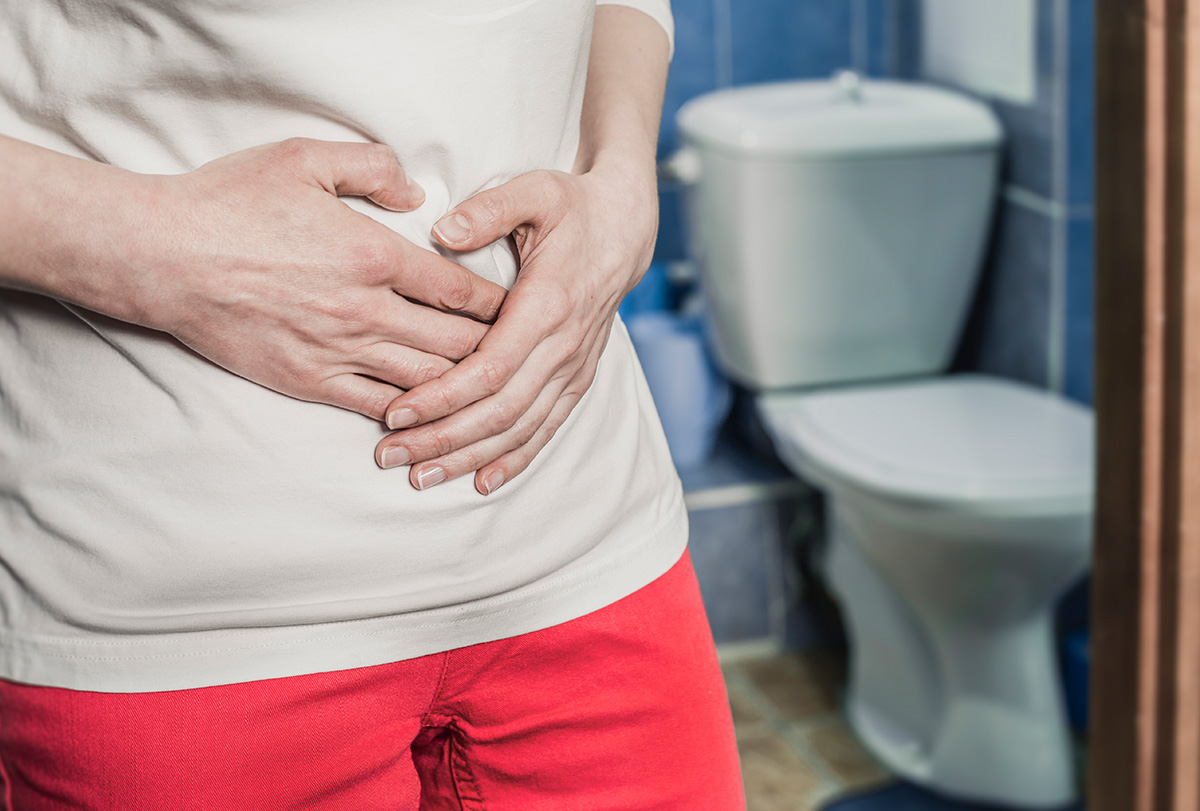
Entamoeba histolytica is classified as an “ameba.” Amebas are unicellular organisms that move with flowing movements with the help of pseudopodia (false feet) in their body.
Amebiasis is more common in tropical areas.
Home Remedies for Amebiasis
If you or anyone you know is suffering from amebiasis, it is pertinent to seek medical attention as this condition can become severe.
In the meantime, you can use some home remedies for symptomatic relief and prevention of further infection.
1. Use apricot extract topically
Amebiasis can cause diarrhea in the affected individuals. Apricots are high in fiber and antioxidants. Apricot leaves can help bind the stool and reduce the severity of the diarrhea. (2)
Many Ayurveda practitioners also recommend this natural remedy to treat diarrhea. Aside from binding stool, apricot leaves also prevent fluid loss. However, this is only a symptomatic remedy and will not heal amebiasis.
How to use:
- Extract some juice from apricot leaves and mix it in some water.
- Apply this extract to your stomach.
- Leave it on for half an hour before washing it off.
2. Drink papaya juice
Papaya is rich in potassium, fiber, and other minerals that may be needed to help combat diarrhea and loss of minerals. Papaya is also filled with antioxidants and anti-inflammatory compounds that can help fight infections. (3)
How to use:
- Mix a teaspoon of papaya seeds in a glass of papaya juice.
- Drink it once a day.
3. Try using guava
Guava and guava leaves are highly acidic, which can help combat stomach infections and destroy parasites in the intestines.
How to use:
- Grind some dried guava leaves.
- Add this powder to a glass of warm water.
- Drink this water at least twice a day for maximum benefit. (4)
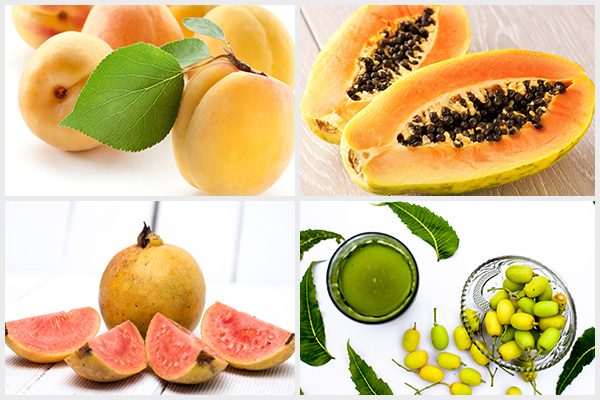
4. Consume Indian lilac (neem)
Indian lilac, or neem, is an ancient Ayurvedic remedy for all kinds of infections. It has potent antimicrobial and anti-inflammatory properties that can help kill parasites in the gut.
How to use:
- Eat 4–5 fresh neem leaves on an empty stomach every day, or drink 2–3 tsp of neem juice daily.
- Continue this for a few weeks until you feel better.
Note: Pregnant or breastfeeding women should avoid consuming neem.
5. Gobble up some garlic cloves
Garlic is known for its anti-inflammatory and antibiotic properties. (5) It also helps boost the body’s immune response and fight infections.
How to use:
Consume 2–3 garlic cloves every day on an empty stomach.
Note: Garlic can cause the blood to thin and increase clotting time. Avoid it if you have to undergo surgery or have bleeding disorders.
6. Give the drumstick plant a try
Moringa oleifera, or the drumstick plant, contains active ingredients such as alkaloids, triterpenoids, and tannins as well as potent phytochemicals that have antimicrobial properties and can help fight infections. (6)
Drumstick leaves contain antimicrobial enzymes that curb inflammation and infection.
How to use:
- Extract the juice of 450 g of drumstick leaves and heat it with some water.
- Drink a little bit of this mixture every day for a couple of weeks.
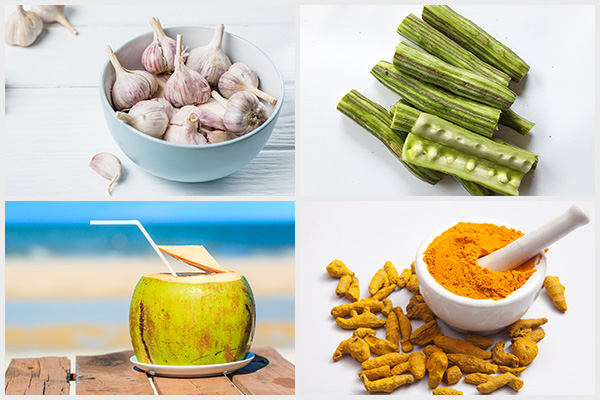
7. Drink coconut water
Coconut water is an easy and effective way to reduce amebiasis. It is filled with antimicrobial and anti-inflammatory properties. It also acts as a rich mineral source to fight mineral loss and dehydration during diarrhea. (7)
How to use:
Consume 2–3 glasses of coconut water daily at different times of the day for maximum benefit.
8. Drink turmeric juice
Turmeric contains an active compound called curcumin, which is antimicrobial and anti-inflammatory in nature. It also helps boost your immune system and protect the cells from damage.
How to use:
- Add a pinch of turmeric powder to a glass of warm water.
- Drink this mixture every morning on an empty stomach. (8)
9. Use oregano
Several studies shave proven the efficacy of oregano in fighting gut infections. It helps kill parasites and prevent the spread of infection.
How to use:
- Mix a couple of oregano oil drops in a glass of water, and drink this mixture twice a day.
- Include fresh or dried oregano seasoning in your food. (9)
Note: Pregnant women and small children must not take this herb.
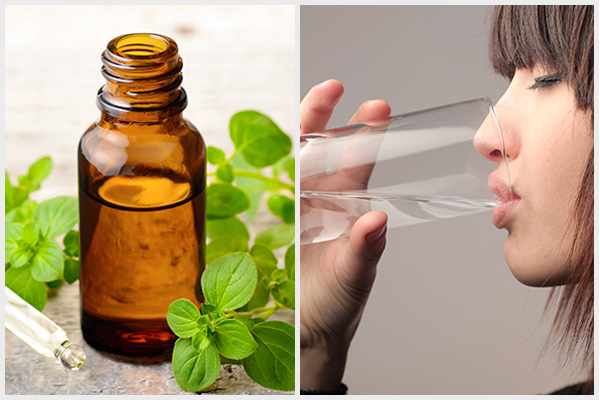
10. Increase fluid intake
Diarrhea during amebiasis can lead to fluid loss and dehydration in the body. Increase your intake of fluids and water to combat this.
Try to consume 7–8 glasses of water every day. Also try to consume lots of juices, oral rehydrating solutions (ORS), teas, etc. (10)
Prevention of Amebiasis
Here are some ways to prevent amebiasis:
- Ensure the food you eat is clean and prepared properly following standard sanitation practices.
- Always wash your hands before eating anything.
- Avoid consuming unpasteurized milk or other dairy products.
- Avoid food sold by street vendors.
- Try to properly wash fruits and vegetables before eating them.
Symptoms of Amebiasis
Symptoms and signs of amebiasis include:
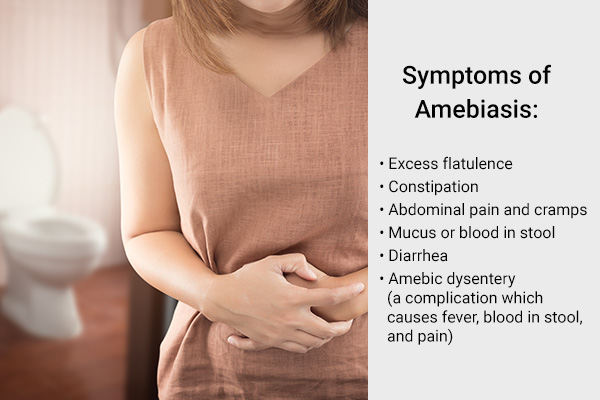
- Excess flatulence
- Constipation
- Abdominal pain and cramps
- Mucus or blood in the stool
- Diarrhea
- Amebic dysentery (a complication that causes fever, blood in stool, and pain)
- Liver abscess is another severe complication that occurs when Entamoeba cells invade the liver and lead to pus collection in it
Note: Many people with amebiasis do not show any symptoms at all and tend to pass cysts in their poop, which spreads the disease further. (11)
Diagnosing Amebiasis
Your doctor can diagnose amebiasis by asking about your symptoms, medical history, travel history, etc., and asking you to undergo some blood tests and a stool culture test.
Treatment revolves mostly around antibiotics to kill the parasite, such as metronidazole or tinidazole, followed by other medicines based on your condition and symptoms. (11)
Additional Things You Must Know About Amebiasis
- Amebiasis is usually caused by three different species of Entamoeba.
- Amebiasis is a common gastrointestinal infection that causes severe diarrhea.
- Statistics suggest that it can have fatal consequences for children below 5 years of age in many developing countries. In some cases, it can lead to a rare condition called fulminant amebic colitis, which has a high mortality rate (more than 50%). (11)
Final Word
Parasitic infections of the gut can be very taxing on the body. It may cause diarrhea, nausea, vomiting, etc. Try to consume lots of probiotics and immune-boosting foods that contain zinc, selenium, vitamin C, etc., for faster relief.
- Was this article helpful?
- YES, THANKS!NOT REALLY


